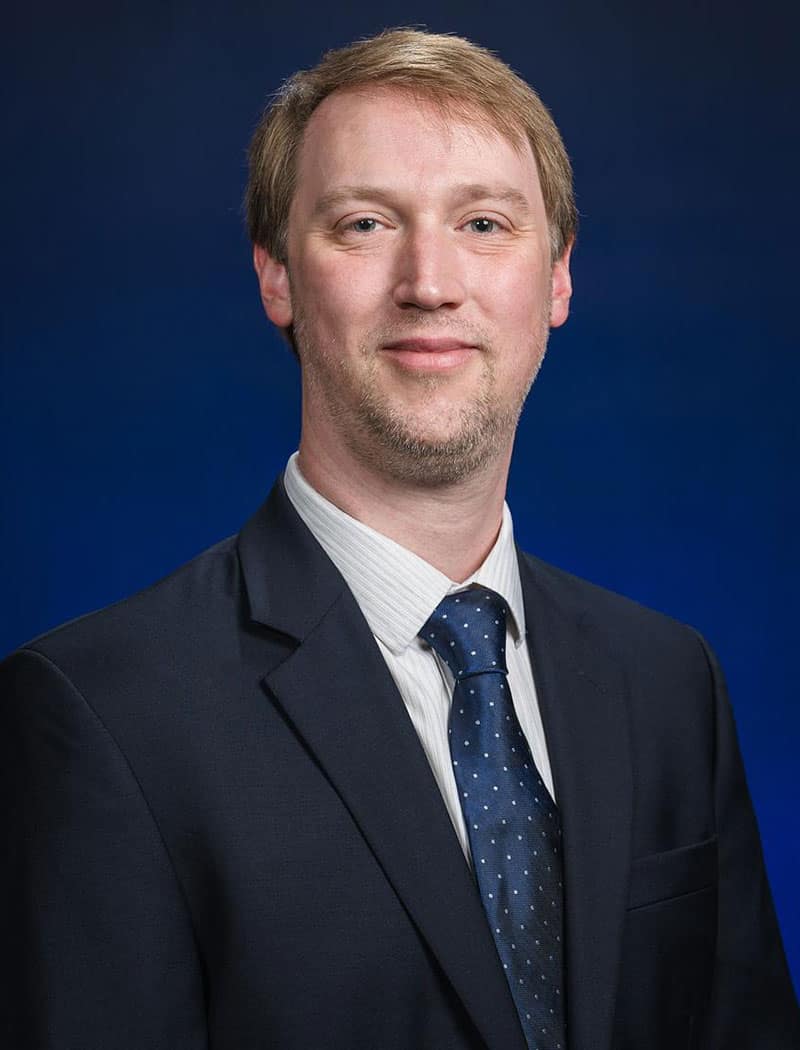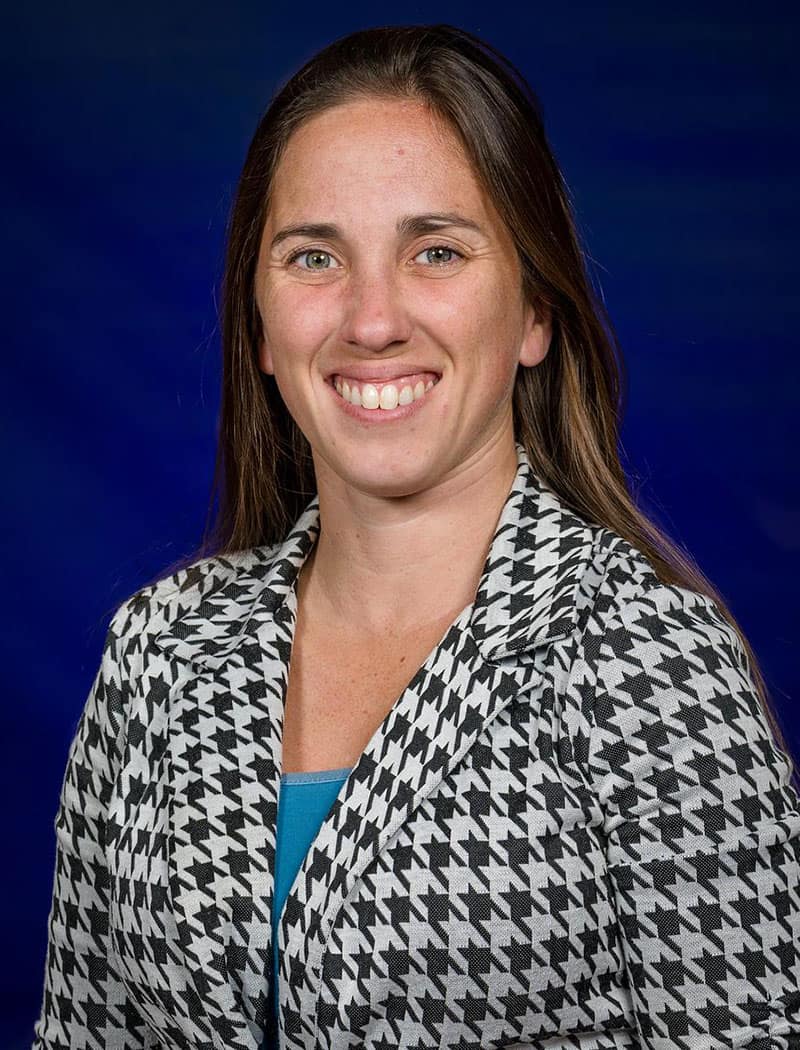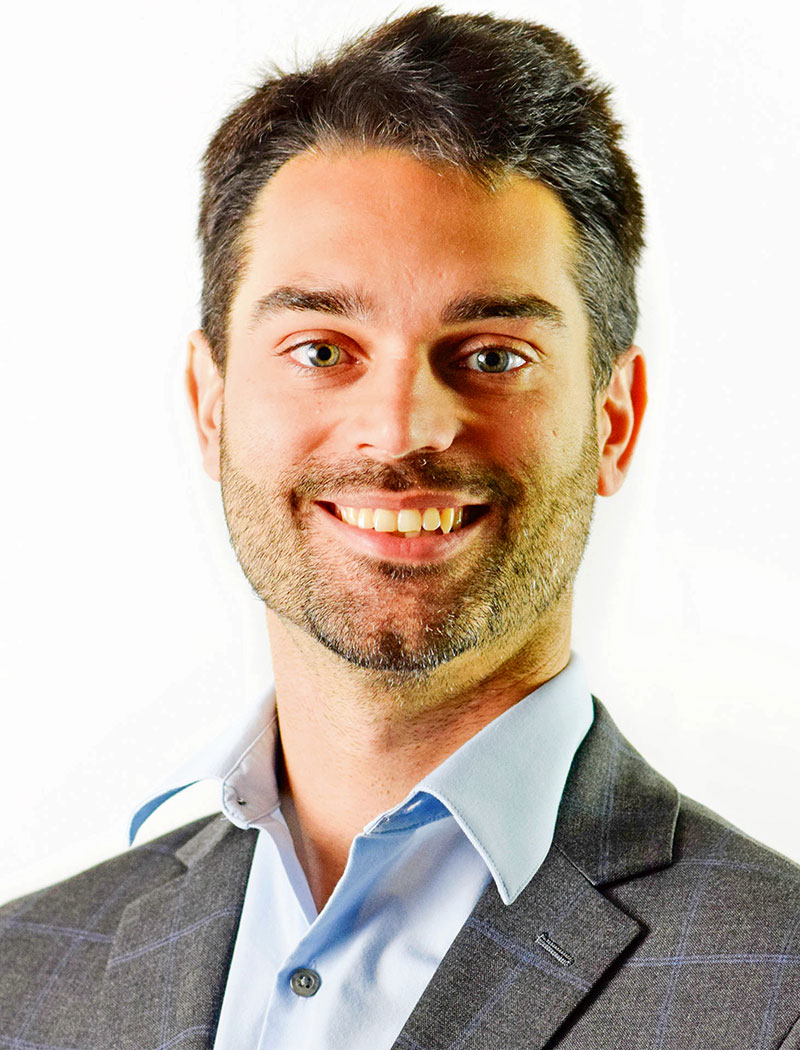Embry-Riddle Project Aims to Pioneer Online Student Research Strategies


Dr. Robert Deters (Photo: Embry-Riddle/Daryl LaBello)
Professors at Embry-Riddle Aeronautical University are working to establish a support framework for fully online undergraduate students to perform research. The initiative is powered by a new $400,000 National Science Foundation grant.
A cross-campus effort led by professors at Embry-Riddle’s Worldwide Campus, the three-year project is designed to increase retention rates of students in STEM (Science, Technology, Engineering and Mathematics) degree programs, increase the academic performance of students engaged in research and improve students’ transferable skills, among other objectives.
“Undergraduate research is a high-impact practice,” said Dr. Robert Deters, principal investigator (PI) on the project and associate professor/program coordinator for the Bachelor of Science in Engineering Technology. “Once involved in research, students — whether in-person or online — are exposed to the full research process, a lot of which is not covered in their typical coursework. Besides seeing how classroom knowledge can be applied to real problems, students performing research improve lifelong skills such as organization, writing and critical thinking.”

Dr. Emily Faulconer (Photo: Embry-Riddle/Daryl LaBello)
The first phase of the project, which was completed in September, saw the launch of a mentoring program for student researchers, as well as a workshop series and a research independent study course. Through their work, the researchers found that most online students (74% of survey respondents) are interested in performing undergraduate research. They also found that participating in research positively impacts students’ career prospects and senses of belonging — Worldwide student Lauren Pitts, for instance, participated in the Daytona Beach Campus’ annual Discovery Day event for undergraduate researchers and won first place — and that virtual mentors demonstrate strong competencies, as measured by mentee evaluation.
“The next three years will be exciting,” said Dr. Emily Faulconer, co-PI and associate professor in the Worldwide Campus College of Arts and Sciences. “The goal is for the program to be internally sustainable by the end.”
Program sustainability would be achieved through the forming of an undergraduate research minor, continuing mentorship performed by Embry-Riddle graduate students and the launching of a student research project-/travel-funding program.

Dr. Brent Terwilliger (Photo: Embry-Riddle/Daryl LaBello)
“The timeline for each of these tasks vary, but efforts are underway in all these areas,” Faulconer added.
Leaders in Virtual Learning
Embry-Riddle has long been a leader in online education. With its online bachelor’s program being ranked either No. 1 or No. 2 in the country every year since 2016 by “U.S. News & World Report,” the university’s latest push to expand research opportunities for virtual students is poised to further strengthen an already rigorous and renowned course of study.
“This program has opened a new level of engagement with our students in the virtual space,” said Dr. Brent Terwilliger, co-PI and associate professor/program coordinator for the Master of Science in Uncrewed and Autonomous Systems degree program. “While working online provides an increase in flexibility and connectivity, it does not come without a fair share of challenges.”

Dr. Darryl Chamberlain (Photo: Darryl Chamberlain)
Easy access to interpersonal connections and hands-on learning experiences, for instance.
“There are three key challenges undergraduate students need to overcome to get started in research: awareness, opportunity and time,” said Dr. Darryl Chamberlain, co-PI and assistant professor/associate department chair in the Mathematics, Science and Technology Department. “This program addresses those challenges through informational seminars, workshops and announcements that lead students from interest in research to funding and completing their very first research project.”
“Our work is helping to explore ways to better support students through mentorship, inclusion in and supervision of research, and industry collaboration,” Terwilliger added. “Even now, we are laying the groundwork in connecting the next generation of creative problem-solvers, innovators and lifelong learners to the real-world needs of stakeholders, STEM career opportunities and financial support resources.”
Professors from Embry-Riddle’s Prescott, Arizona, campus will join in the next phases of the project.

 Mike Cavaliere
Mike Cavaliere